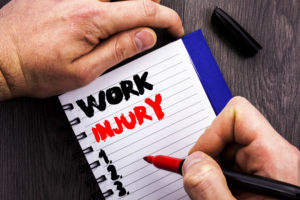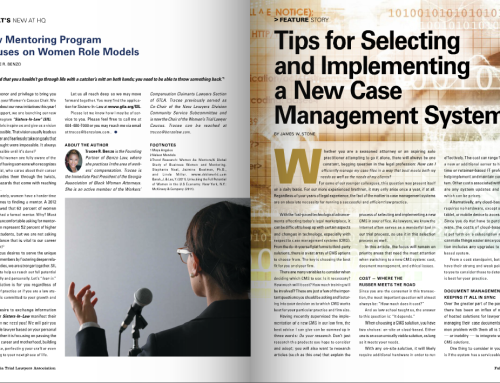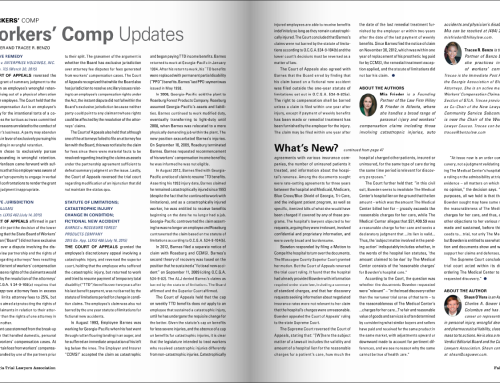Documentation is the most important aspect of the workers’ compensation filing process, yet it is the least mentioned outside of filing the initial paperwork. Most workers’ comp claims are denied for the following reasons:
- Improper documentation
- Injury didn’t occur on the job
- Injury was aggravated by pre-existing condition
So what is proper documentation and what does it include?
Documentation begins with you, the injured employee, reporting the injury to your employer. Don’t wait too long to complete this step. Not only could waiting to report the injury delay your compensation, depending on your state’s guidelines, you could also forfeit your right to file. Georgia State Board of Workers’ Compensation strongly urges injured workers report injuries to their employer within 30 days of the injury.
Once you report the injury to your employer, it is the responsibility of your employer to provide you with the proper reporting forms to these entities:
- The workers’ comp insurance provider
- The state workers’ comp board (depending on state law)
Once you complete the paperwork with your employer, it is the responsibility of your employer to provide you with information on your rights as an employee, information on worker’s comp benefits, and information about returning to work.
How can you increase your approval odds with documentation?
Once an injury occurs, you really have no control over the circumstances of the injury. You can, however, increase your chances of receiving your workers’ comp benefits by completing all required documentation in its entirety. Do not omit information. This is very important. Incomplete forms will not tie up the process, but will instead guarantee your workers’ comp benefits are denied. Proper documentation meets this criteria:
- It is accurate.
- It is thorough, including all relevant details like the date/time of the injury, location during the injury, and how it occurred.
- It is complete.
- It is turned in. Do not hold onto documentation.
What else counts as documentation?
Your own notes are your second best documentation efforts. Keep a detailed notebook of the process, from the initial injury to filing to receiving benefits. Include full names of providers, employers including HR personnel you may speak with during the process, and everyone you speak with in your attorney’s office. You are your best advocate in terms of documentation. If you feel you are not receiving the best treatment, document this. If you submit bills to your employer for compensation, make copies. Document, document, document. Proper documentation beats memory any day.
Should language barriers be a concern?
No. If language is a barrier for you, make sure your employer and/or attorney’s office appoints a professional staff member to assist you with any language issues. Language issues should not prevent you from filing a workers’ comp claim if you are injured on the job.
Have questions about proper documentation? Call Benzo Law at 404-480-7000 for a free case evaluation.
Don’t have time for a call? Email us!






